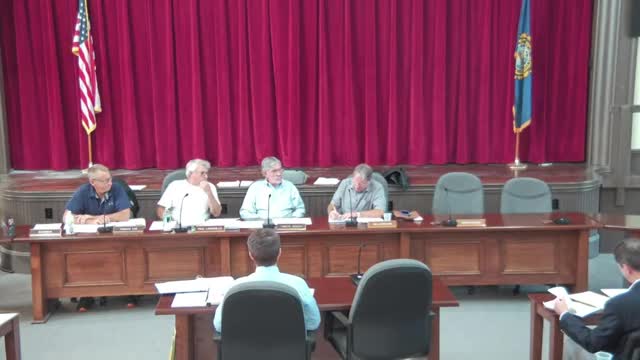Aquifer Waste Management Debate Emerges Over Special Exception Request in Local Community
September 05, 2025 | Alton Town, Belknap County, New Hampshire
This article was created by AI summarizing key points discussed. AI makes mistakes, so for full details and context, please refer to the video of the full meeting. Please report any errors so we can fix them. Report an error »

Concerns over septic system capacity dominated the recent Zoning Board of Adjustment (ZBA) meeting in Alton, New Hampshire, as discussions unfolded regarding a proposed special exception for a property utilizing the same aquifer as 17 other homes. The debate centered on whether the additional septic system would be appropriate given the existing waste load on the aquifer.
A representative for the property argued that the state had determined the septic load capacity for the site could support over 100 units, significantly more than the one additional system being requested. "I think this property is more than safe based on the expert opinions that we've provided," he stated, emphasizing that the existing systems have been state-approved and have functioned without issues.
However, board members raised questions about the implications of adding another septic system to an already burdened aquifer. The representative acknowledged the concerns but maintained that the special exception was justified, stating, "If the board says it applies, we’re prepared to let a judge decide."
The discussion highlighted the ongoing tension between development needs and environmental protections in the area. The property owner expressed frustration over the lengthy approval process, noting that the community has contributed significantly to local tax revenues while facing challenges in providing adequate housing for senior citizens.
As the meeting concluded, the board was left to consider the implications of their decision, weighing the potential for increased housing against the environmental impact on the aquifer. The outcome of this deliberation could set a precedent for future developments in Alton, as the community grapples with balancing growth and sustainability.
A representative for the property argued that the state had determined the septic load capacity for the site could support over 100 units, significantly more than the one additional system being requested. "I think this property is more than safe based on the expert opinions that we've provided," he stated, emphasizing that the existing systems have been state-approved and have functioned without issues.
However, board members raised questions about the implications of adding another septic system to an already burdened aquifer. The representative acknowledged the concerns but maintained that the special exception was justified, stating, "If the board says it applies, we’re prepared to let a judge decide."
The discussion highlighted the ongoing tension between development needs and environmental protections in the area. The property owner expressed frustration over the lengthy approval process, noting that the community has contributed significantly to local tax revenues while facing challenges in providing adequate housing for senior citizens.
As the meeting concluded, the board was left to consider the implications of their decision, weighing the potential for increased housing against the environmental impact on the aquifer. The outcome of this deliberation could set a precedent for future developments in Alton, as the community grapples with balancing growth and sustainability.
View full meeting
This article is based on a recent meeting—watch the full video and explore the complete transcript for deeper insights into the discussion.
View full meeting
